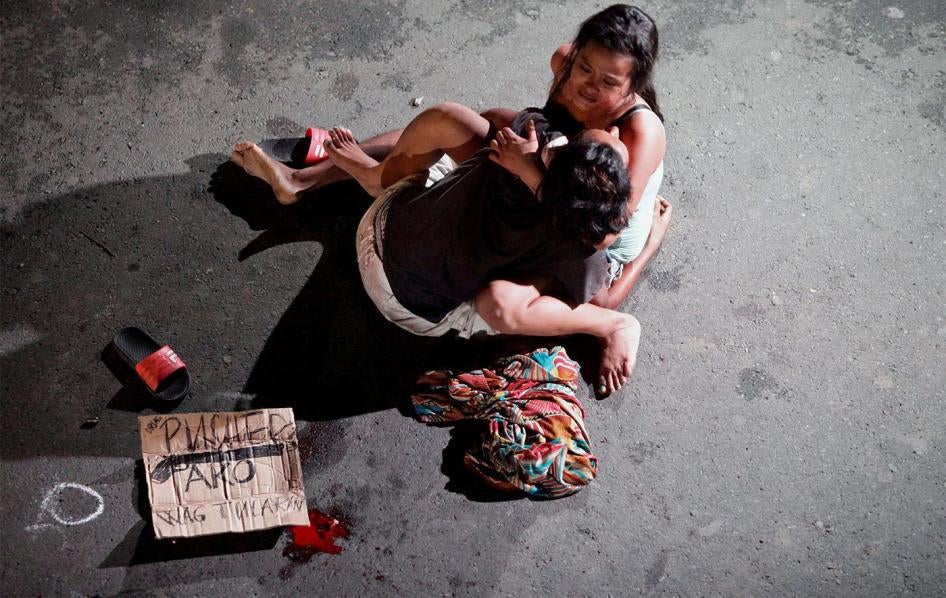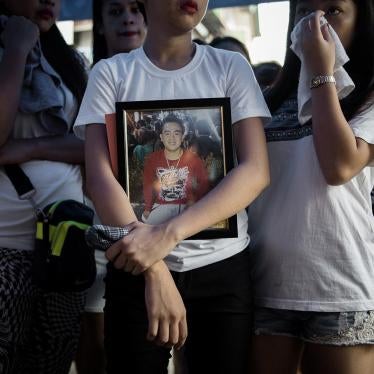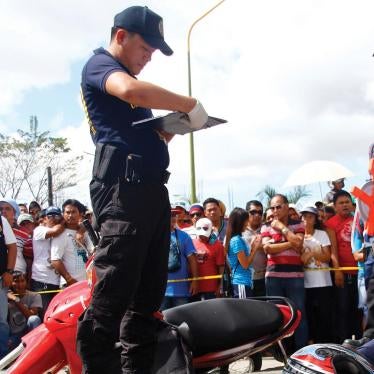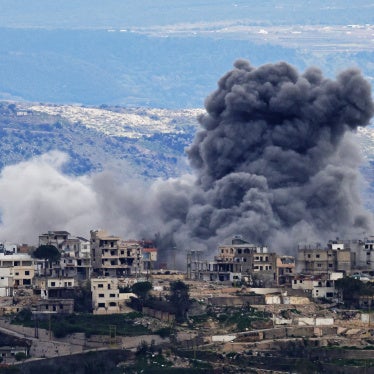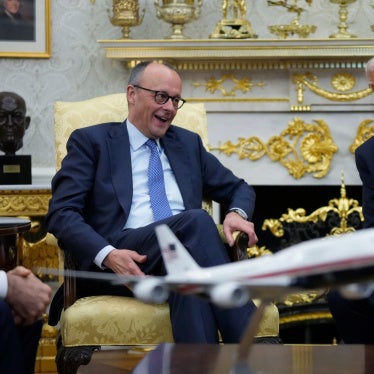(New York) – Philippine President Rodrigo Duterte has initiated a “war on drugs” in which police and “unidentified gunmen” have killed several thousand people, Human Rights Watch said today in its World Report 2017. Since taking office on June 30, 2016, Duterte and senior government officials have praised the killing spree of suspected drug dealers and drug users and resisted holding those responsible to account.
In the 687-page World Report, its 27th edition, Human Rights Watch reviews human rights practices in more than 90 countries. In his introductory essay, Executive Director Kenneth Roth writes that a new generation of authoritarian populists seeks to overturn the concept of human rights protections, treating rights as an impediment to the majority will. For those who feel left behind by the global economy and increasingly fear violent crime, civil society groups, the media, and the public have key roles to play in reaffirming the values on which rights-respecting democracy has been built.
“In the name of wiping out ‘drug crime,’ President Duterte has steamrolled human rights protections and elevated unlawful killings of criminal suspects to a cornerstone of government policy,” said Phelim Kine, deputy Asia director at Human Rights Watch. “Friends of the Philippines need to make clear that it can’t be business as usual until the killings stop and there are meaningful moves toward accountability.”
The Philippines has seen an unprecedented level of apparent extrajudicial killings by law enforcement since Duterte took office. Police statistics show that from July 1 to November 25, 2016, police killed an estimated 1,959 suspected “drug pushers and users.” That death toll constitutes a nearly 20-fold jump over the 68 such police killings recorded between January 1 and June 15. Police statistics attribute an additional 3,658 killings to unknown vigilantes from July 1 to November 23. The UN Special Rapporteur on Extrajudicial Killings, Agnes Callamard, confirmed in November that she had accepted a government invitation to undertake a fact-finding mission in the Philippines in 2017.
Duterte has said the killings show the “success” of his anti-drug campaign and urged police to “seize the momentum.” In August, Duterte warned that he would declare martial law if the judiciary obstructed his anti-drug campaign. In September, the senate ousted the chair of the Senate Committee on Justice and Human Rights, Senator Leila De Lima, in apparent reprisal for her inquiry into the killings. In November, Duterte announced that he may suspend the writ of habeas corpus to intensify the campaign.
In March, some 6,000 protesters, primarily indigenous peoples, farmers, and their supporters from drought-stricken areas in North Cotabato and Bukidnon provinces, gathered in Kidapawan City in Mindanao, calling for government food aid and other assistance. The police response included shooting live ammunition into the crowd, killing two people. Neither the senate and nor the police have released the results of their respective investigations into the incident.
The Philippines is also recording one Asia’s fastest growing epidemics of the human immunodeficiency virus (HIV) in Asia, driven by new infections among men who have sex with men. The worsening HIV epidemic is driven by national, provincial, and local government policies that are hostile to evidence-based policies and interventions, including condom use.
